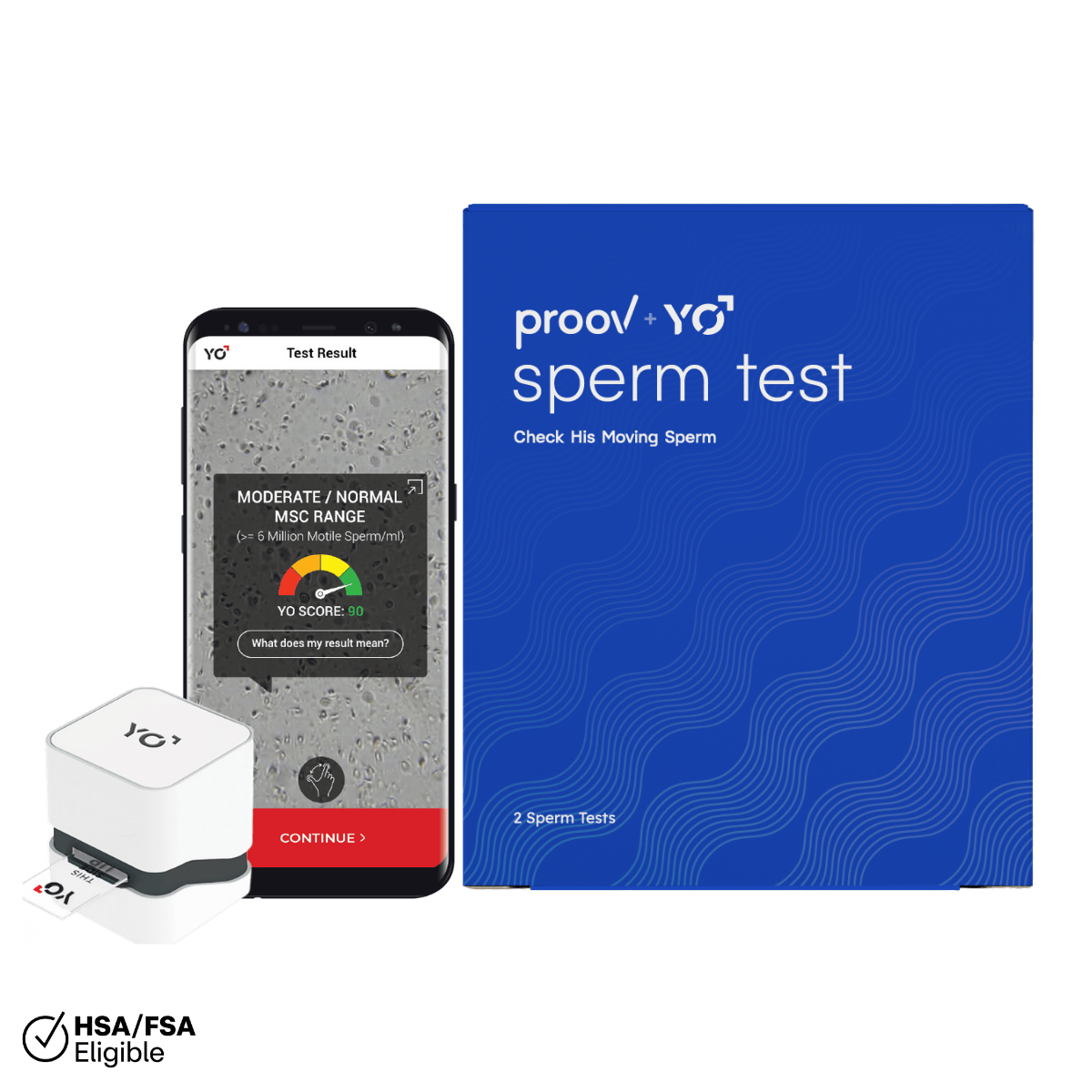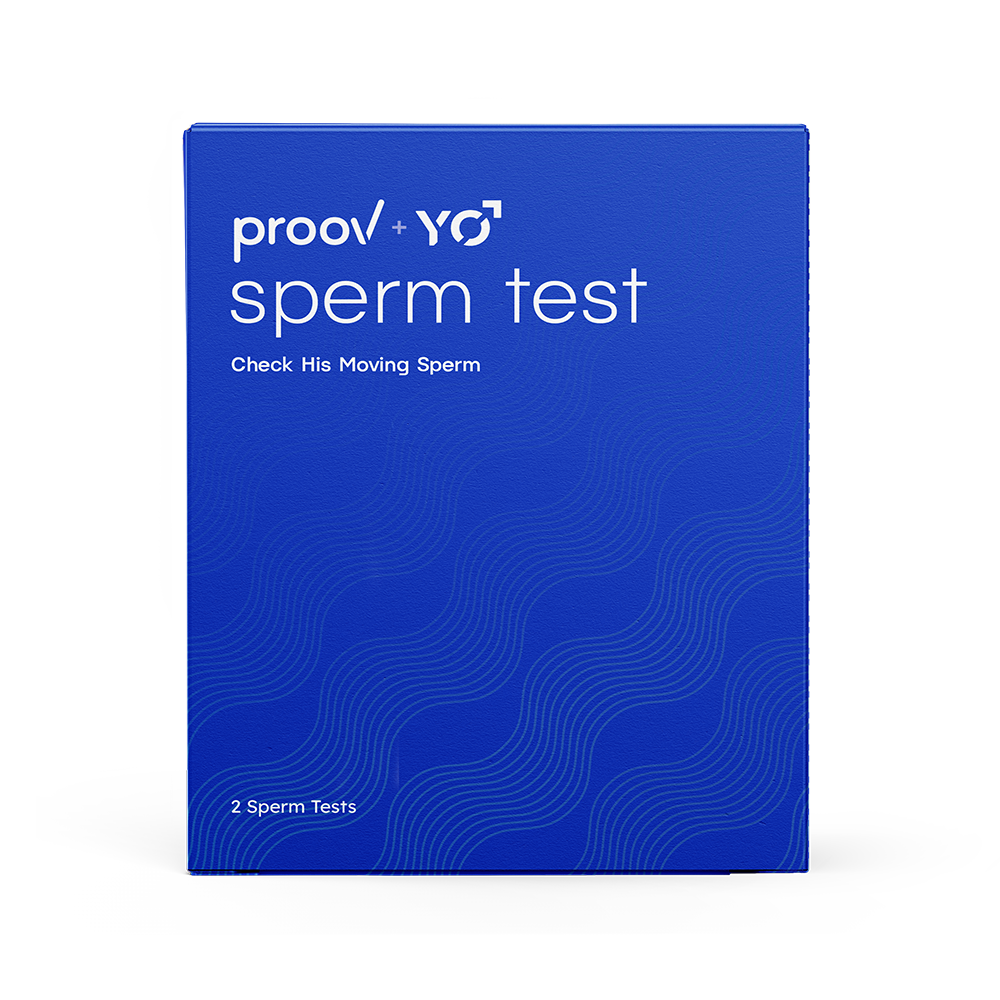Simply put, hormones are what make women, women! As we change and enter different stages of life, our hormones change with us. We believe that testing and understanding your various hormone levels can help you make better decisions about your health.
One of these very important hormones is follicle stimulating hormone (FSH). While FSH doesn’t get as much attention as estrogen or progesterone, we believe it still holds powerful information. Keep reading to learn more about FSH and how you can measure your levels at home with our new FSH test!
What is follicle stimulating hormone (FSH) and what does it do?
Follicle stimulating hormone (FSH) does exactly what it says: each cycle, FSH stimulates a few follicles to develop and mature during the follicular phase (first half of your cycle). In doing this, FSH also helps control the menstrual cycle.
In a natural, non-medicated cycle, FSH rises at the beginning of your cycle to help your ovaries grow some eggs. The body usually recruits one dominant follicle that will grow and mature. As the recruited follicle gets stimulated by FSH, and as it starts producing estrogen, this lowers FSH and prevents more follicles from developing.
Once estrogen reaches a certain level, it sends a signal to the brain that it’s time to ovulate! This causes the surge in luteinizing hormone (LH), which triggers the mature follicle to release the egg.
After ovulation, the empty follicle (also called the corpus luteum) produces progesterone, which supports a healthy uterine lining for implantation. Progesterone also inhibits FSH production and when progesterone levels drop right before your period, it signals to the brain that the cycle is over and it’s time for FSH to increase again.

Each cycle, FSH stimulates a few follicles to develop and mature during the follicular phase (the first half of your cycle).
Why should I measure my FSH levels?
Each cycle, a small amount of FSH is required to stimulate the dominant follicle to grow. However, as we get older and our ovaries stop working as well, more FSH is required to stimulate your follicles. Simply put, high FSH levels at the beginning of your cycle may be a sign that your ovaries are not working properly.
It’s no secret that women are born with all the eggs they will ever have. As we age, we also ovulate and release an egg each cycle, meaning each cycle there are less eggs left.
The amount of eggs a woman has is referred to as her ovarian reserve. With a smaller ovarian reserve, FSH has to work harder (i.e. your levels will need to be higher) in order to stimulate a follicle.
If you are trying to conceive, high FSH levels may impact your ability to get pregnant, especially if you are planning to use assisted reproduction techniques that require stimulation medicines. A diminished ovarian reserve (DOR) may predict low response to medications, which may impact your in-vitro fertilization (IVF) success rates.
If you are trying to conceive naturally and your ovaries aren’t working properly, they may not be maturing follicles, producing eggs, or ovulating. Without an egg, there’s no chance at pregnancy. You also may only have a few eggs left which can mean your chances at getting pregnant are limited.
If you are over 35, high FSH is a sign of diminished ovarian reserve which is completely normal as we get older and we approach perimenopause. Some women may experience diminished ovarian reserve before 35, as early as their 20s, in which case is considered primary ovarian failure (POF).
While many women have little to no trouble when transitioning into perimenopause, other women experience many unwanted symptoms. High FSH can help give insight into whether or not your symptoms are caused by your ovaries not working properly. Some symptoms include:
- Irregular periods
- Hot flashes
- Vaginal dryness
- Sleep problems
How do I measure my FSH levels?
We’re so glad you asked! While you can get an FSH blood test from your doctor, if you’re anything like us you may want to avoid needles at all costs. Which is why we’re so excited to introduce the new Proov Reserve FSH test!
The Proov Reserve FSH test is designed to measure FSH levels in urine three times during the beginning of your cycle to assess ovarian function. FSH levels have been shown to fluctuate — similar to LH or PdG — which is why we recommend testing levels on cycle days 5, 7, and 9 instead of a single, one-point-in-time blood test. Additionally, FSH levels can also vary cycle to cycle which is why we recommend testing for multiple cycles in order to get the most complete picture of your levels.
Proov Reserve FSH tests are 99% accurate at detecting FSH in urine and must be used with the free Proov Insight app to get numeric results. Here’s what the levels can indicate:
- Less than 10: This is the ideal FSH range, especially if you are planning on doing fertility treatments.
- 10-15: FSH levels are a little too high. While they may not impact natural conception, these levels may predict poor response to fertility medications.
- 15-25: FSH levels are elevated. You might begin to experience perimenopause symptoms at this stage, even if you are still menstruating and ovulating.
- 25+: FSH levels are high. This can indicate your ovaries are no longer working properly and you may be approaching menopause. Keep in mind that in order for menopause to be diagnosed, you need to have gone 12 months without a period.
What do my results mean?
If you never get a high FSH test, then congrats — your ovaries are likely working properly! However, if you’re experiencing perimenopausal symptoms, we recommend consulting your doctor.
If you get one high FSH test result, then this could be a sign that your FSH is slowly increasing over time and your ovaries are starting to have a harder time maturing follicles. In this case, you may want to continue testing cycle to cycle and monitor any perimenopausal symptoms you may be experiencing. If your symptoms worsen or next cycle you get two high FSH test results, we recommend following up with your doctor.
If you get two or more high FSH test results, this could be a sign that your ovaries are not functioning properly. In this case, we recommend following up with your doctor to develop a treatment plan together.
At Proov, our mission is to empower women with the tools so they can know more about their bodies. With the new Proov Reserve FSH tests, you can learn more about your ovarian function so that you can make more informed decisions about your health!
Updated on 4/4/24












